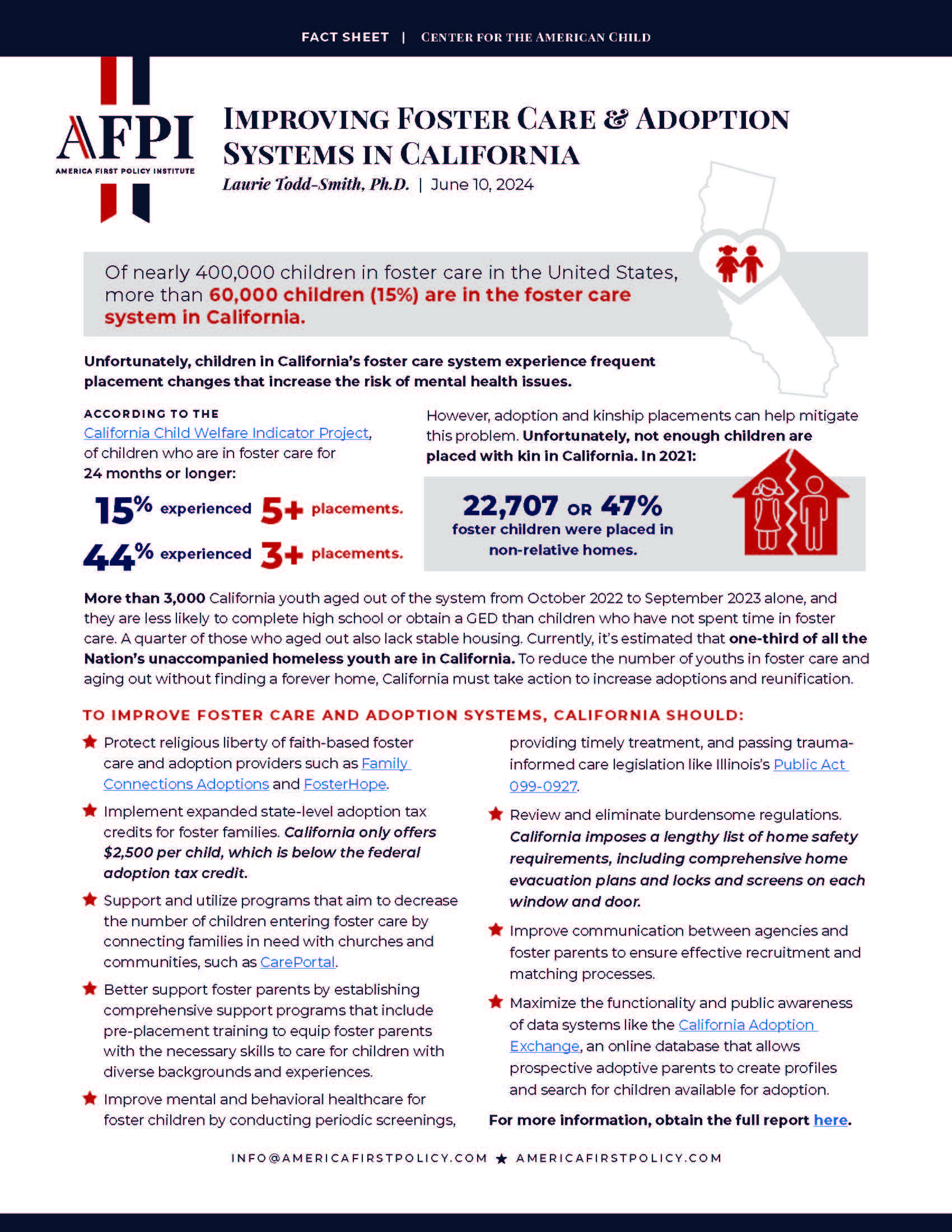Laurie Todd-Smith,Ph.D.
June 10, 2024
Improving Foster Care & Adoption Systems in California
Of nearly 400,000 children in foster care in the United States, more than 60,000 children (15%) are in the foster care system in California.
Unfortunately, children in California’s foster care system experience frequent placement changes that increase the risk of mental health issues.
ACCORDING TO THE California Child Welfare Indicator Project, of children who are in foster care for 24 months or longer:
- 15% experienced 5+ placements.
- However, adoption and kinship placements can help mitigate this problem. Unfortunately, not enough children are placed with kin in California. In 2021:
- 22,707 or 47% foster children were placed in 44% non-relative homes.
More than 3,000 California youth aged out of the system from October 2022 to September 2023 alone, and they are less likely to complete high school or obtain a GED than children who have not spent time in foster care. A quarter of those who aged out also lack stable housing. Currently, it’s estimated that one-third of all the Nation’s unaccompanied homeless youth are in California. To reduce the number of youths in foster care and aging out without finding a forever home, California must take action to increase adoptions and reunification.
TO IMPROVE FOSTER CARE AND ADOPTION SYSTEMS, CALIFORNIA SHOULD:
- Protect religious liberty of faith-based foster care and adoption providers such as Family
- Connections Adoptions and FosterHope. Implement expanded state-level adoption tax credits for foster families. California only offers $2,500 per child, which is below the federal adoption tax credit.
- Support and utilize programs that aim to decrease the number of children entering foster care by connecting families in need with churches and communities, such as CarePortal.
- Better support foster parents by establishing comprehensive support programs that includepre-placement training to equip foster parents with the necessary skills to care for children with diverse backgrounds and experiences.
- Improve mental and behavioral healthcare for foster children by conducting periodic screenings, providing timely treatment, and passing traumainformed care legislation like Illinois’s Public Act 099-0927.
- Review and eliminate burdensome regulations. California imposes a lengthy list of home safety requirements, including comprehensive home evacuation plans and locks and screens on each window and door.
- Improve communication between agencies and foster parents to ensure effective recruitment and matching processes.
- Maximize the functionality and public awareness of data systems like the California Adoption Exchange, an online database that allows prospective adoptive parents to create profiles and search for children available for adoption.
